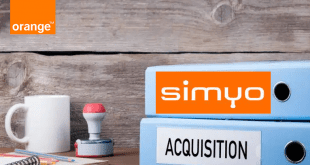Chip Design Software Startup Raises £1.2 Million
ChipFlow, a startup based in Sheffield, has successfully secured £1.2 million in pre-seed funding for its open-source software designed to assist businesses in developing custom computer chips. Built on top of the programming language Python, ChipFlow offers a hardware description language for creating digital integrated circuits. This innovative solution enables companies to efficiently debug, test, simulate, and verify prospective custom chips. With the financial backing from the recent funding round, ChipFlow is poised to advance its mission of empowering businesses to design high-quality, tailored computer chips while leveraging the advantages of open-source software.

The Funding Round and Investors
ChipFlow recently concluded a pre-seed funding round, raising an impressive £1.2 million. The funding was provided by a combination of venture capital firms and angel investors who recognized the potential of the startup’s open-source chip design software. Key investors in this round included established venture capital firms with expertise in the technology and semiconductor sectors, as well as knowledgeable angel investors seeking to support innovative solutions in the industry.
This significant injection of funds will enable ChipFlow to bolster its research and development efforts, expand its team of experts, and enhance the capabilities of its software platform. The support from investors not only validates the startup’s vision and potential but also provides the necessary resources to drive further innovation and disrupt the custom chip design landscape.
ChipFlow Open-Source Chip Design Software
ChipFlow offers an open-source software description language that is specifically designed for the development of digital integrated circuits. The software is built on Python, a widely used and versatile programming language. By leveraging the power and flexibility of Python, ChipFlow provides businesses with a user-friendly and accessible platform for designing and optimizing custom computer chips.
The key advantage of ChipFlow lies in its ability to facilitate the entire chip design process. Companies can utilize the software to debug, test, simulate, and verify their prospective custom chips, ensuring their functionality and performance meet the desired specifications. This streamlines the design workflow, reduces the time required for development, and allows businesses to bring their custom chips to market more efficiently.
The open-source nature of ChipFlow provides additional benefits to businesses. By being open-source, the software allows for collaborative development, enabling a community of users to contribute to its improvement. This fosters innovation, accelerates the evolution of the software, and encourages knowledge sharing among designers and engineers. Furthermore, the use of an open-source platform helps lower barriers to entry, making chip design more accessible to a broader range of companies, including startups and smaller enterprises.

Implications and Advantages for Businesses
The successful pre-seed funding round for ChipFlow and the development of its open-source chip design software have several significant implications for businesses in the sector. Firstly, the software’s compatibility with Python, a widely adopted programming language, ensures a smooth integration into existing design workflows. This facilitates the adoption of ChipFlow by companies and reduces the learning curve associated with transitioning to new chip design tools.
The software’s comprehensive features, including debugging, testing, simulation, and verification capabilities, provide businesses with a unified platform for chip development. This streamlines the design process, increases efficiency, and allows for iterative improvements, resulting in higher-quality custom chips.
Furthermore, the open-source nature of ChipFlow empowers businesses by fostering collaboration and community-driven innovation. By engaging a wider pool of contributors, the software benefits from diverse perspectives and expertise, leading to rapid advancements and the continuous enhancement of its functionalities. This collaborative environment also enables businesses to tap into a wealth of shared knowledge and resources, thereby accelerating their own chip design processes.
The accessibility of ChipFlow’s open-source platform is particularly advantageous for startups and smaller enterprises. It democratizes chip design by providing cost-effective tools and leveling the playing field for businesses that may not have had access to high-end commercial chip design software. This opens up opportunities for innovation and competition, allowing a broader range of companies to develop custom chips tailored to their specific needs.
Conclusion
ChipFlow’s successful pre-seed funding round, raising £1.2 million, highlights the strong interest and support for open-source chip design software in the business world. The innovative solution provided by ChipFlow, built on Python, enables companies to design, debug, test, simulate, and verify custom computer chips efficiently. With the backing of investors, ChipFlow is well-positioned to further develop and enhance its open-source platform, empowering businesses and fostering collaboration in the chip design community. This funding marks an important milestone for the startup, paving the way for continued growth and disruption in the custom chip design industry.
By A W Moghul
 MVNO MVNE MNO Mobile & Telecoms industry intelligence Telecoms Jobs, News and Business
MVNO MVNE MNO Mobile & Telecoms industry intelligence Telecoms Jobs, News and Business







